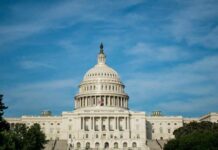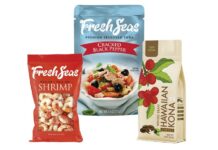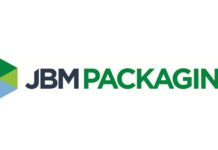Perfluoroalkyl and polyfluoroalkyl substances (PFAS), often referred to as “persistent chemicals,” have been utilized since the 1940s. They have been incorporated into a wide range of products to confer resistance to heat, water, oil, and corrosion. While PFAS chemicals are commonly associated with firefighting foam, they can also be detected in various consumer goods, including food packaging. The regulations concerning PFAS in food packaging typically concentrate on materials made from plant-based fibers, such as paper or paperboard, as these substances are frequently treated with PFAS chemicals to make them resistant to oil, grease, or water.
Food packaging produced from alternative materials like glass, metal, or plastic often falls outside the scope of these regulations, although this may vary from state to state. These restrictions encompass not only items utilized in foodservice establishments but also consumer food packaging available in retail, such as paper plates, cups, and bowls.
Despite the absence of comprehensive federal legislation banning PFAS chemicals, Congress did pass a law in late 2020 that prohibited the use of PFAS in food packaging intended for the military. In the absence of federal regulations, at least 12 states have taken steps to regulate the presence of PFAS in food packaging, and numerous other states are contemplating similar measures. Most of these state laws primarily regulate PFAS that are intentionally added to products, but California has also established a maximum allowable limit for PFAS in food packaging. Implementation timelines differ among states, as detailed below.
Here is an overview of PFAS legislation on a state-by-state basis:
New York: New York currently prohibits the distribution and sale of food packaging containing intentionally added PFAS.
California: California prohibits the distribution, sale, or offering for sale of any food packaging containing PFAS, whether intentionally added or present at or above 100 parts per million (ppm).
Washington: Washington has implemented a tiered ban on the manufacture, sale, and distribution of any food packaging to which PFAS chemicals have been intentionally added, with the first bans taking effect in February 2023.
Vermont: Starting from July 1, 2023, Vermont’s law bans the manufacture, sale, and distribution of food packaging with intentionally added PFAS.
Connecticut: As of December 31, 2023, Connecticut’s law prohibits food packaging to which PFAS have been intentionally introduced during manufacturing or distribution.
Colorado: Colorado’s ban on intentionally added PFAS in food packaging takes effect on January 1, 2024.
Maryland: As of January 1, 2024, Maryland’s law prohibits the manufacture or distribution of food packaging with intentionally added PFAS.
Minnesota: Minnesota’s statute, effective as of January 1, 2024, bans the manufacture, sale, or distribution of food packaging containing intentionally added PFAS.
Rhode Island: Starting from January 1, 2024, Rhode Island bans food packaging to which PFAS have been intentionally introduced during manufacturing or distribution.
Hawaii: As of December 31, 2024, Hawaii’s law makes it unlawful to manufacture, sell, or distribute specific food packaging items to which PFAS chemicals have been intentionally added.
Oregon: Effective from January 1, 2025, Oregon’s law prohibits the sale or distribution of foodware containers with intentionally added PFAS and the use of polystyrene foam containers for prepared food by food vendors.
Maine: As of January 1, 2030, products sold, offered for sale, or distributed in Maine cannot contain intentionally added PFAS. Maine’s Department of Environmental Protection has also released draft rules for regulating PFAS chemicals in food packaging, which would apply to manufacturers with over $1 billion in sales.
To address the challenges posed by PFAS, manufacturers should consider conducting product testing and require their component suppliers to provide Certificates of Compliance (CoCs). Distributors and retailers should also insist on adequate CoCs to potentially mitigate liability and risk. Additionally, businesses should collaborate with legal experts and other professionals to make informed decisions regarding the manufacturing, distribution, and sale of food packaging containing PFAS chemicals.



























